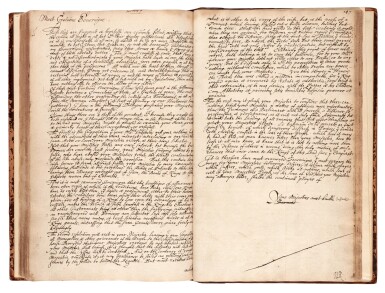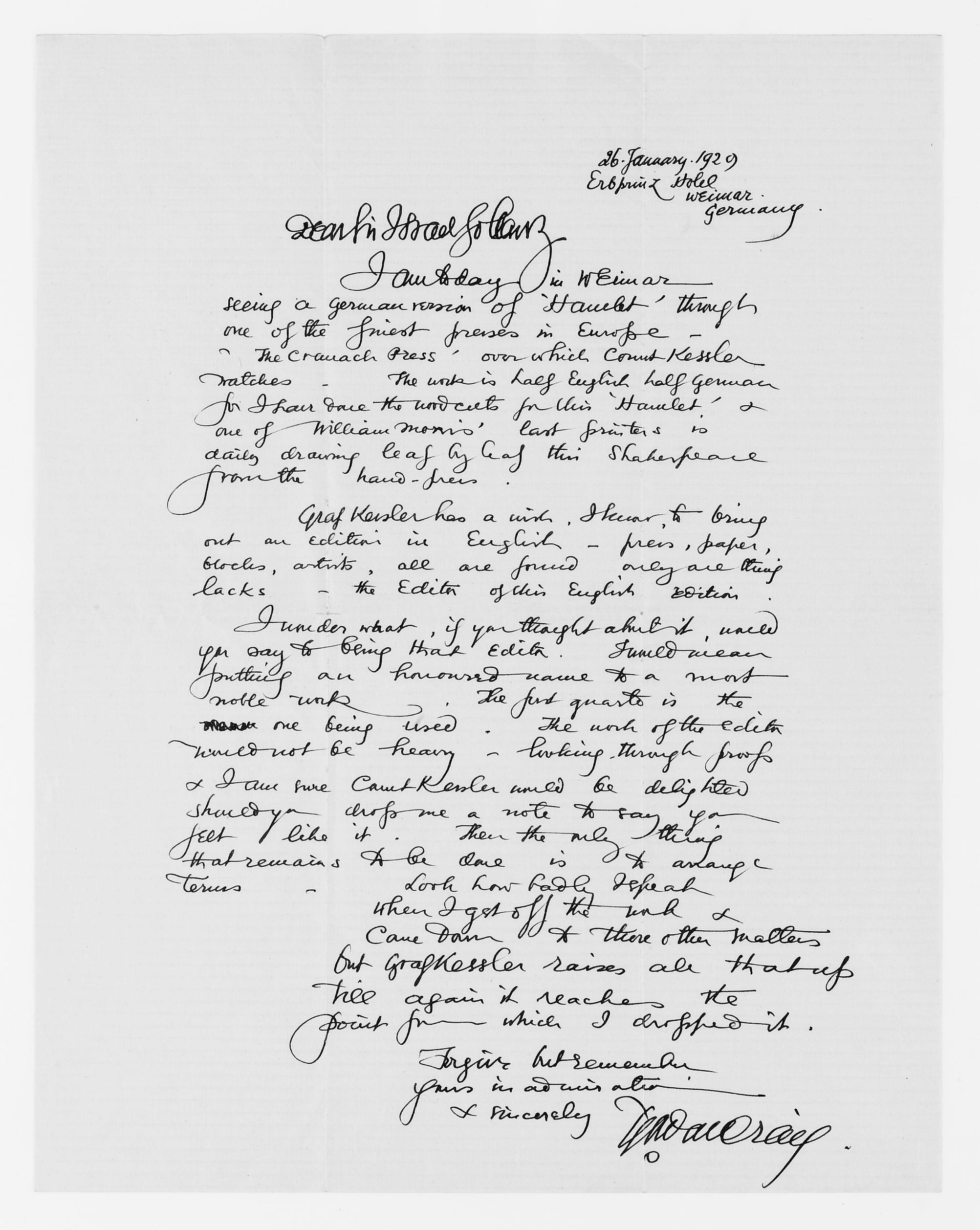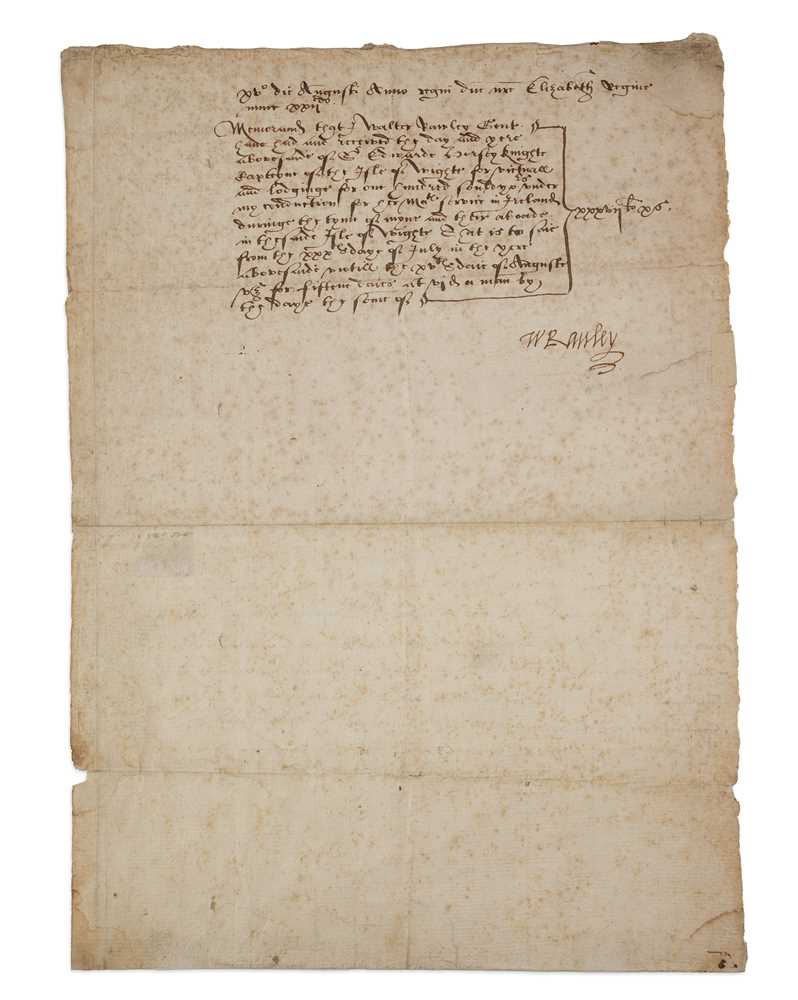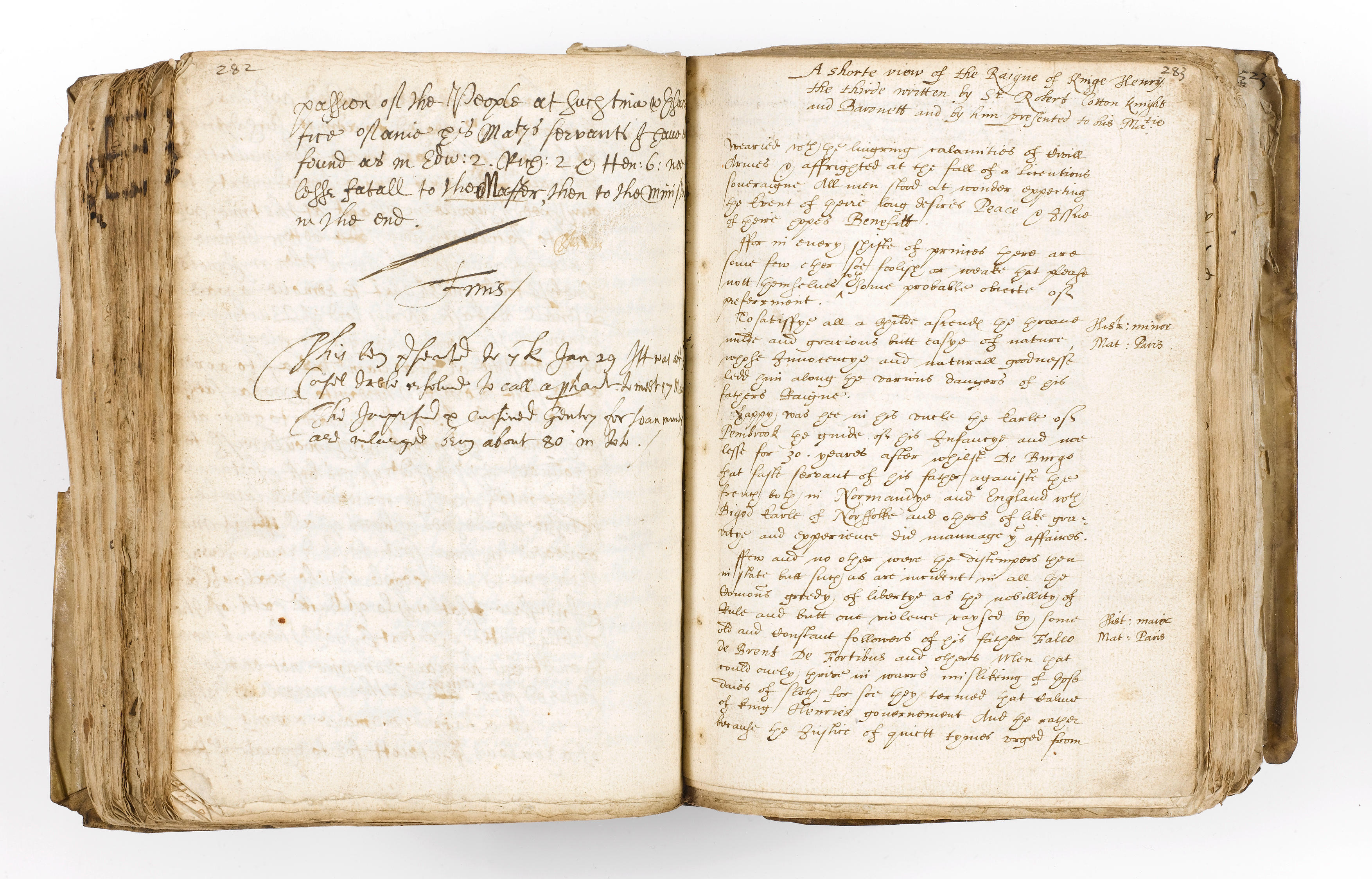RALEGH, Sir Walter (1522?-1618). Letter signed ('W. Ralegh') including nine lines in autograph, to an unidentified official at Court, n.p., 8 March 1587[88], one page, folio (traces of guard on verso). An application for a new grant of the monopoly of licences for the sale of wines, for which Ralegh is enclosing a draft (not present). 'Whereas the Queen's ma[jesty] hath heretofore given unto me by her Letters patente authoritie to grant License for the sellinge of wynes by retayle, her Highness's pleasure is to revoke and make voyd the same, and by newe Letters patente to regrante unto me the authoritie and benefytt thereof for a further term of years, respectully I praye you h[e]artily to pass the drafte note this bearer my servante, shall bringe unto you, and settle your hande thereunto redie for her Highness to signe'. The addition in Ralegh's hand assures his correspondent that the Queen will be pleased to do this, 'yow may take knowledge of her pleasure by thes my letters beseichinge yow to freinde mee so mich to make expeditio[n] herein & yow shall cu[m]mande mee in what I may stand yow in steed'. A neat example of Ralegh's use of royal favour to augment his fortune. Ralegh had obtained the extremely profitable wine monopoly in 1583, enabling him to charge vintners one pound per annum for licences to retail wine. He subcontracted the business to Richard Browne who guaranteed him the then considerable sum of £700 a year for seven years, but when Browne made huge profits for himself, and declined to re-negotiate their agreement or share them, Ralegh asked the Queen to revoke his licence and to grant him an entirely new one, for a longer term, so that he might arrange new and better terms with the subcontractor. Browne was then sacked.
RALEGH, Sir Walter (1522?-1618). Letter signed ('W. Ralegh') including nine lines in autograph, to an unidentified official at Court, n.p., 8 March 1587[88], one page, folio (traces of guard on verso). An application for a new grant of the monopoly of licences for the sale of wines, for which Ralegh is enclosing a draft (not present). 'Whereas the Queen's ma[jesty] hath heretofore given unto me by her Letters patente authoritie to grant License for the sellinge of wynes by retayle, her Highness's pleasure is to revoke and make voyd the same, and by newe Letters patente to regrante unto me the authoritie and benefytt thereof for a further term of years, respectully I praye you h[e]artily to pass the drafte note this bearer my servante, shall bringe unto you, and settle your hande thereunto redie for her Highness to signe'. The addition in Ralegh's hand assures his correspondent that the Queen will be pleased to do this, 'yow may take knowledge of her pleasure by thes my letters beseichinge yow to freinde mee so mich to make expeditio[n] herein & yow shall cu[m]mande mee in what I may stand yow in steed'. A neat example of Ralegh's use of royal favour to augment his fortune. Ralegh had obtained the extremely profitable wine monopoly in 1583, enabling him to charge vintners one pound per annum for licences to retail wine. He subcontracted the business to Richard Browne who guaranteed him the then considerable sum of £700 a year for seven years, but when Browne made huge profits for himself, and declined to re-negotiate their agreement or share them, Ralegh asked the Queen to revoke his licence and to grant him an entirely new one, for a longer term, so that he might arrange new and better terms with the subcontractor. Browne was then sacked.















Testen Sie LotSearch und seine Premium-Features 7 Tage - ohne Kosten!
Lassen Sie sich automatisch über neue Objekte in kommenden Auktionen benachrichtigen.
Suchauftrag anlegen